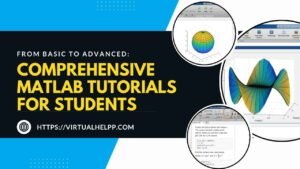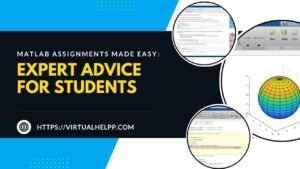Algebra is a fundamental branch of mathematics that lays the foundation for more advanced topics in science, engineering, and technology. However, many students struggle with algebraic concepts, often finding them abstract and challenging. This difficulty can lead to frustration and a lack of confidence in their mathematical abilities. But thanks to the advent of online tutoring, particularly interactive algebra tutoring, students now have access to innovative learning methods that make algebra more accessible and enjoyable.

Table of Contents
ToggleWhat is Interactive Algebra Tutoring?
Interactive algebra tutoring is a modern approach to learning that goes beyond traditional tutoring methods. Unlike conventional tutoring, where students passively receive information, interactive tutoring engages students actively in the learning process. This method involves real-time problem-solving, interactive visual aids, and adaptive learning technologies that cater to each student’s unique needs. The result is a more engaging and effective learning experience that helps students understand algebraic concepts more deeply and retain information longer.
Key Features of Interactive Algebra Tutoring
Real-Time Problem Solving
One of the most significant advantages of interactive algebra tutoring is the ability to solve problems in real-time. Students can work through algebraic equations with the guidance of a tutor, receiving immediate feedback. This instant correction helps students understand their mistakes and learn the correct methods on the spot, ensuring they don’t repeat the same errors in the future.
Engaging Visual Aids
Visual learning plays a crucial role in understanding algebra. Interactive algebra tutoring platforms often incorporate visual aids such as graphs, charts, and interactive tools that make abstract concepts more concrete. For instance, a tutor might use a graphing tool to visually demonstrate how a linear equation works, helping students see the relationship between variables. This approach not only makes learning more engaging but also enhances comprehension.
Adaptive Learning Technology
Interactive tutoring platforms often use adaptive learning technology to customize lessons based on the student’s pace and learning style. This technology assesses a student’s strengths and weaknesses and adjusts the difficulty of problems accordingly. For example, if a student struggles with quadratic equations, the platform may provide additional practice problems in that area before moving on to more complex topics. This personalized approach ensures that students fully grasp each concept before advancing.
Collaborative Learning Environment
Another standout feature of interactive algebra tutoring is the collaborative learning environment it fosters. Students can interact with their peers, share ideas, and work on problems together. Many platforms offer group learning sessions where students can collaborate on solving algebraic problems, benefiting from different perspectives. This peer-to-peer interaction not only enhances learning but also makes the process more enjoyable.
How Interactive Algebra Tutoring Works
Step-by-Step Learning Process
Interactive algebra tutoring typically begins with an initial assessment to determine the student’s current level of understanding. Based on this assessment, a personalized learning plan is created, which includes interactive lessons and practice problems tailored to the student’s needs. As the student progresses, their performance is tracked, and adjustments are made to ensure continuous improvement.
Tools and Platforms Used
Various tools are employed in interactive algebra tutoring, including virtual whiteboards and algebra-specific software. Virtual whiteboards allow students and tutors to work on problems together in real-time, simulating the experience of a physical classroom. Algebra-specific software, on the other hand, provides interactive exercises and visualizations that make learning algebra more dynamic and engaging.
Role of the Tutor
In interactive algebra tutoring, the tutor’s role extends beyond simply teaching concepts. Tutors guide students through the learning process, providing motivation and support. They adapt their teaching methods to suit the student’s learning style and pace, ensuring that each session is productive and tailored to the student’s needs.
Advantages of Interactive Algebra Tutoring Online
Flexibility and Convenience
One of the most appealing aspects of online interactive algebra tutoring is its flexibility. Students can schedule sessions at times that suit them best, whether it’s after school, on weekends, or even during holidays. This convenience allows students to learn at their own pace without the constraints of a traditional classroom schedule.
Personalized Learning Experience
Interactive tutoring offers a highly personalized learning experience. Unlike a one-size-fits-all classroom approach, online tutoring tailors lessons to each student’s specific needs. Tutors can focus on areas where the student struggles the most, ensuring that time is spent effectively to improve their understanding.
Cost-Effective Learning
Online interactive tutoring is often more affordable than in-person tutoring. With a wide range of pricing options, students can choose a plan that fits their budget. Moreover, the effectiveness of interactive learning means that students may require fewer sessions to achieve their goals, making it a cost-effective solution.
Improved Student Engagement
Interactive tutoring sessions are designed to keep students engaged. The use of interactive tools, real-time problem solving, and personalized feedback helps maintain student interest and motivation. This active participation leads to better retention of algebraic concepts and a more enjoyable learning experience.
Finding the Right Interactive Algebra Tutor Online
Qualities to Look for in a Tutor
When searching for an interactive algebra tutor online, it’s essential to look for certain qualities. A good tutor should have a strong understanding of algebraic concepts and be able to explain them clearly. Additionally, they should possess excellent communication skills, be patient, and have the ability to adapt their teaching methods to suit the student’s learning style.
Evaluating Tutoring Platforms
Choosing the right tutoring platform is just as important as selecting the right tutor. Look for platforms with positive user reviews, testimonials, and a track record of success. The platform should also offer features like interactive tools, progress tracking, and flexible scheduling options to ensure a comprehensive learning experience.
Importance of Trial Sessions
Before committing to a tutoring service, it’s advisable to take advantage of trial sessions. These sessions allow you to assess the tutor’s teaching style and the platform’s features. A trial session can help you determine whether the tutor and platform are a good fit for your learning needs, ensuring you make an informed decision.
Virtual Help: Your Go-To Platform for Interactive Algebra Tutoring
If you’re looking for a reliable platform for interactive algebra tutoring, Virtual Help is an excellent choice. Virtual Help connects students with qualified algebra tutors who specialize in interactive learning. The platform offers a range of features designed to enhance the tutoring experience, including real-time problem-solving tools, adaptive learning technology, and collaborative learning environments.
Virtual Help’s interactive tutoring platform is user-friendly and accessible on both iOS and Android devices, making it easy to learn algebra on the go. Whether you’re struggling with basic algebraic concepts or advanced equations, Virtual Help has a tutor and a learning plan tailored to your needs.
Conclusion
Interactive algebra tutoring online offers a revolutionary way to learn and master algebra. With its personalized approach, engaging tools, and flexible scheduling, it addresses the challenges students face in traditional learning environments. Whether you’re a student looking to improve your algebra skills or a parent seeking effective tutoring options for your child, interactive online tutoring is an invaluable resource. Platforms like Virtual Help provide the perfect blend of expertise, technology, and convenience to ensure success in algebra.
FAQs
- What is the difference between traditional and interactive algebra tutoring?
- Traditional tutoring often involves passive learning, where the tutor explains concepts while the student listens. In contrast, interactive algebra tutoring engages students actively through real-time problem-solving, interactive tools, and adaptive learning techniques, making the learning process more dynamic and effective.
- How does Virtual Help ensure the quality of its tutors?
- Virtual Help carefully selects its tutors based on their expertise in algebra and teaching experience. The platform also provides ongoing training and support to ensure tutors are up-to-date with the latest interactive teaching methods.
- Can interactive tutoring help students with severe learning difficulties in algebra?
- Yes, interactive tutoring can be particularly beneficial for students with learning difficulties. The personalized approach allows tutors to focus on the student’s specific challenges, providing targeted support and using adaptive learning tools to make complex concepts more accessible.
- Is interactive algebra tutoring suitable for all age groups?
- Absolutely. Interactive algebra tutoring can be tailored to suit students of all ages, from middle school students learning basic algebra to college students tackling advanced topics. The flexibility and adaptability of this approach make it suitable for learners at any level.
- How can I get started with interactive algebra tutoring on Virtual Help?
- Getting started is easy! Simply download the Virtual Help app on your iOS or Android device, sign up for an account, and browse through the list of available algebra tutors. You can schedule a trial session to find the right tutor for you and start your interactive algebra learning journey.





